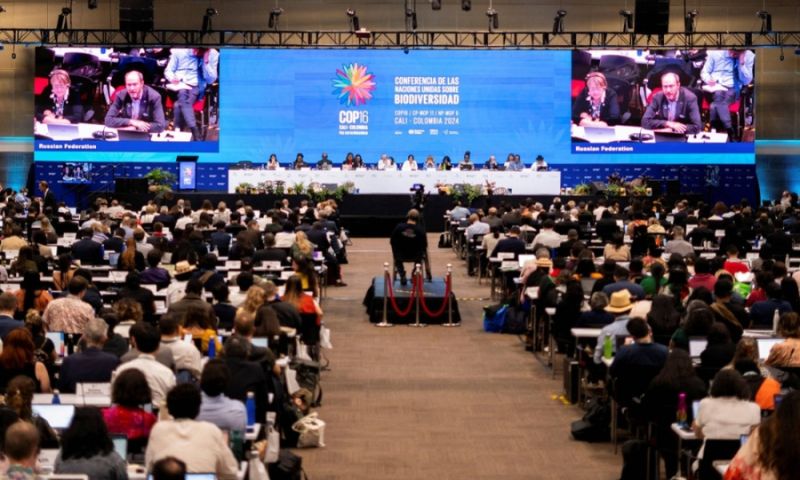CALI: The United Nations’ nature summit in Colombia agreed on Saturday on the creation of a fund to share the profits of digitally sequenced genetic data taken from animals and plants with the communities they come from.
The accord represents a significant step in recognizing the contributions of indigenous and local communities to scientific discoveries that drive billion-dollar industries.
Known as the “Cali Fund,” the initiative was finalized after nearly two weeks of rigorous negotiations at the 16th Conference of Parties (COP16) to the UN’s Convention on Biological Diversity (CBD).
The goal of the fund is to ensure that the profits from genetic data, widely used in lucrative fields such as medicine, cosmetics, and biotechnology, will be partially returned to communities in developing countries where the original species and knowledge originated.
“Developing countries are being plundered,” said UN Secretary General Antonio Guterres at the start of the talks, emphasizing the urgent need to ensure that economic gains from genetic data are fairly shared.
“Digitized DNA from biodiversity underpins scientific discoveries and economic growth, but developing countries don’t gain fairly from these advances – despite being home to extraordinary richness,” Guterres said.
The agreement states that companies and institutions commercially benefiting from digital genetic information, referred to as “digitally sequenced information” (DSI), will contribute a portion of their revenue to the fund. Sectors specifically targeted include pharmaceuticals, health supplements, biotechnology, cosmetics, and agribusiness.
Under the terms of the non-binding agreement, companies making use of DSI and exceeding a certain income threshold are expected to contribute one percent of their profits or 0.1 percent of their revenue to the fund.
The agreement also establishes a precedent for regulating the use of genetic information, which is frequently accessed through free online databases without any compensation to the countries or communities where the data originated. Much of this information has fueled lucrative innovations in sectors that rely heavily on genetic resources.
The issue of equitable DSI benefit-sharing has been contentious since COP15 in Montreal, where members first proposed the “multilateral mechanism” to manage DSI revenues. However, core questions over financial contributions, recipient allocation, and fund management delayed finalization, pushing COP16 into overtime before an agreement was reached.























